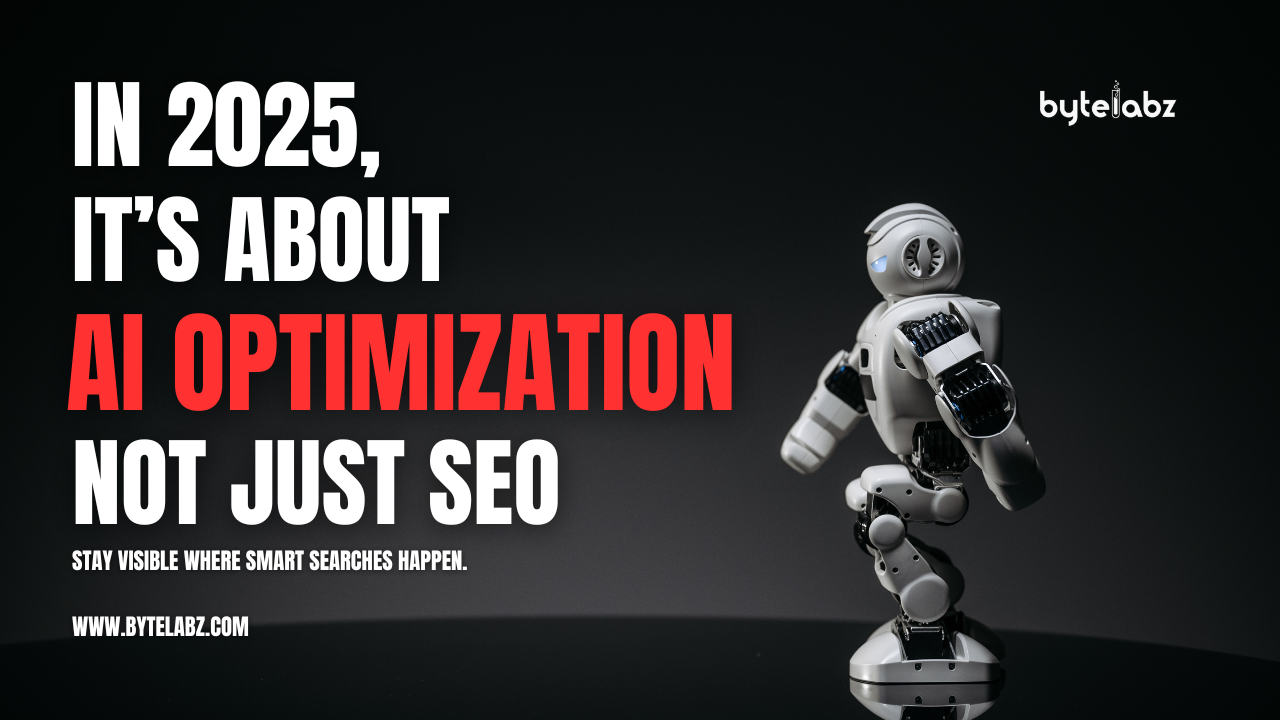Online search behaviour is evolving more quickly than ever before. Only a few years ago, companies concentrated on improving their Google results. These days, the primary sources for solutions are AI-powered programmes like
Perplexity,
Microsoft Copilot,
Google’s AI Overviews, and
ChatGPT. Users ask AI questions and receive quick, tailored answers rather than having to browse through pages of results. Because of this change, AI algorithms, as well as people, need to be able to see your brand. You might be invisible to a large audience if these systems are unable to understand or trust your content.
Why It’s Important: How AI Search Differs from Traditional SEO. Clarity, authority, and context are given priority over keyword stuffing. It searches for reliable voices, organised information, and content that speaks directly to the user’s.
How Does AI Search Work?
AI search is changing online information discovery. AI-powered search systems concentrate on understanding context, intent, and meaning in order to provide more accurate and relevant results, compared with traditional search engines that mainly depend on keyword matching.
Natural Language Processing (NLP) is the fundamental method by which AI search reads human language. Slang, conversational queries, and even incomplete questions can be handled by it as a result. When you enter “best Italian restaurant near me that’s open now,” for instance, AI can precisely determine your purpose (Italian food), location (near me), and time (open now).
AI search uses machine learning to refine and enhance results based on how users interact. It keeps track of the results that users click on, how long they spend on a page, and whether they come back to narrow down their search. This helps the algorithm in predicting the types of results that will be most helpful for future searches that are similar.
AI utilizes structured data and schema markup to better analyze and interpret website content. Businesses that use these techniques improve their chances of being recommended in AI-driven search results and even featured in voice assistant answers.
Why AI Search Changes the Game?
For years, traditional SEO has revolved around ranking higher on search engine results pages (SERPs). The process was clear: find the right keywords, optimize your website content, and earn backlinks to climb the rankings. Although this method remains useful, the emergence of AI-driven search has completely changed the game. Today, simply being “on page one” is no longer the ultimate goal—AI-driven systems decide what information to present, often bypassing the traditional list of links altogether.
-
Contextual Understanding
AI systems evaluate the intent and context of a query, compared to traditional search engines that match precise phrases. The ability to grasp user intent instead of just matching keywords is known as semantic search. When a user enters in “best running shoes for flat feet”, for instance, AI does more than simply look for articles that include those exact terms. Rather, it looks at the goal (finding supportive shoes), the issue (flat feet), and additional contextual elements like brand authority, current product evaluations, and even availability in a particular place.
Your content may be completely ignored by AI search if it is too focused on keyword stuffing without considering user intent. This implies that rather than focusing only on keyword targeting, content strategy must now give priority to providing answers to queries and resolving issues.
-
Conversational Responses
The goal of AI-driven search is to deliver responses that feel human, not purely automated. AI frequently offers compressed, conversational responses that directly address the query rather than a lengthy list of websites for visitors to browse. This is especially visible in AI chat assistants and voice search, such as ChatGPT, Google Gemini, or Microsoft Copilot, which provide a single, precise response rather than dozens of possibilities.
The inference? Users might not ever see your link if it is not included in the AI’s selected answer set. To improve your chances of being chosen, you must optimise for structured data, FAQ material, and AI-powered snippets.
-
Authority-Driven Selection
AI is designed to prioritize reliable, trustworthy, and top-quality sources. It evaluates credibility by analyzing:
- Domain authority and trustworthiness
- Content depth and quality
- Reputation signals like backlinks from reputable sources
- Consistency and freshness of content
In short, if your site is full of thin content, outdated articles, or unverified claims, AI search will likely push it aside in favor of better sources. Establishing yourself as a reliable authority in your industry has never been more crucial.
5 Proven Strategies to Stay Visible in AI Search
-
Create Authoritative, Trustworthy Content (EEAT Framework)
To determine whose material to promote, AI technologies apply Google’s Experience, Expertise, Authoritativeness, and Trustworthiness (EEAT) principles.
- Share case studies from the real world
- Publish thoughtful articles and blogs maintained by experts
- Add your expertise and business details.
-
Optimize for Conversational Queries
Natural language is what AI tools thrive on. Make content for queries and conversational phrases like these as well, rather than focusing only on short keywords like “
best web design.”
- What’s the best way to design a fast-loading website in 2025?
- How can small businesses rank in AI search?
-
Build Structured Data & Schema Markup
Structured data helps AI understand your business better by describing your content with precise context (reviews, services, FAQs, etc.).
- Leverage an FAQ format to increase your chances of appearing in AI-generated answers.
- Include the location and contact details in the organisation schema.
- Make your services stand out in the service schema.
-
Use a Wide Range of Content Formats
Images, music, video, and text are all included in AI models. While a blog article may be excellent, your chances of being chosen are increased if you include an infographic, explaining video, or a podcast episode.
At Bytelabz, when we create content marketing campaigns, we repurpose the same topic into blogs, short videos, LinkedIn posts, and infographics to maximize AI reach.
-
Maintain a Strong Online Presence
AI search tools cross-check data from multiple sources — including reviews, social profiles, and news mentions.
- Keep an eye on reviews for your Google Business Profile.
- Engage in discussions about the subject on social media.
- Boost backlinks and favourable news coverage.
How to Maintain AI Search Visibility?
AI-powered search optimisation is not just an idea of the future in today’s rapid digital marketing environment; it is already influencing how consumers find businesses online. The context, relevance, and authority are given priority above basic keyword matches as search engines and AI assistants develop.
Working with an experienced
SEO Expert who understands AI search optimization, advanced SEO strategies, and content marketing tailored for AI algorithms maintains you a few steps ahead of the competition. By implementing structured data, voice search optimization, and local SEO for AI-driven platforms, you can ensure your brand remains visible and relevant in an AI-first world.
The reality is clear—while some brands struggle to be seen, early adopters of AI-driven SEO will consistently attract high-quality, targeted leads. If you want your company to appear as the top suggestion in AI-powered search results, now is the time to take action.


